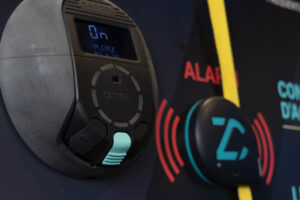
BlockBatCE: Design and smart management of energy communities with blockchain technology and the incorporation of batteries
November 28, 2022
INSESS-COVID19: Artificial intelligence to detect and attend to people in situations of vulnerability
December 1, 202230/11/2022
An ambitious digital learning ecosystem called MERIT launched in October 2022 with a vision and plan that aims to help address Europe's skills gap among digital specialists.

The project Master of Science in Smart, Secure and Interconnected Systems (MERIT) is a European Union co-funded project under the Digital Europe Programme, with participating universities from four countries, industrial partners, excellence and research centres, national technology transfer organisations and Digital Innovation Hubs.
The purpose of MERIT, in which CIT UPC participates and led by the Manresa School of Engineering (EPSEM UPC) of the Universitat Politècnica de Catalunya - BarcelonaTech (UPC), is to increase the number of young people who can contribute to the digital economy by enhancing their capacities for innovation, entrepreneurship and employability through enhanced on-the-job training as well as academic training at the university level - supported by continued education. The main concern of MERIT is to equip society with workers able to understand, manage and innovate in technological developments including artificial intelligence (AI), IoT and cybersecurity.
The project includes a joint Master program that four European universities will offer: UPC, Vilnius Gediminas Technical University (VILNIUS TECH), Riga Technical University (RTU) and Tallinn University of Technology (TalTech), together with industrial partners and other stakeholders: Asoindel, Exacaster, Fondazione Bruno Kessler (FBK), Sunrise Valley Science and Technology Park (SSMTP), and Digital Innovation Zone (DIZNE).
How does MERIT achieve this?
Through its four-year programme, MERIT will develop a strong educational ecosystem that is innovative, inclusive and sustainable. The programme will create a knowledge base of society's needs in the field of digital innovation and employability. It will also establish conversion courses for reskilling non-ICT specialists and mobility opportunities for teachers and learners between the 4 countries. Finally, the programme will provide industry-relevant courses, hackathons and employability skills for students and graduates to be job-ready upon graduation.
MERIT is a European program aiming at increasing the number of digital specialists, reskilling individuals and providing upskilling. It will be implemented in four European countries: Spain, Lithuania, Estonia and Latvia, but the Master's students will be able to address industry challenges at the EU level, with a special focus on countries with a low DESI (Digital Economy and Society) index, such as Romania. The program aims to provide students with excellent learning tools (e-learning resources, blended learning approach), as well as to identify the market needs and trends that are going to emerge in the next years. MERIT contributes to the ICT domain by promoting the integration of research aspects to hands-on problems and by supporting the insertion of young people into companies or public organizations.
Who can benefit from the program?
A special focus will be on prioritising underrepresented communities and gender equality in STEM careers. The program will include mentoring and networking opportunities, as well as hands-on experience in labs, companies and public organisations.
This is a unique program that consolidates Europe's best minds in cutting-edge technologies for the creation of a highly skilled workforce. It promotes the advanced learning and development of emerging technologies in the field of robotics, automation, the internet of things, and cybersecurity applications. Students will be trained by leading researchers from top universities and companies in Europe.
MERIT is a four-year project (2022-2026) and has a total budget of €12,5 million.
Technology
Topic
You want to know more?
Related Projects
- The Image and Video Processing Group (GPI), part of the IDEAI-UPC research group, and the Digital Culture and Creative Technologies Research Group (DiCode) from the Image Processing and Multimedia Technology Center (CITM) at the Universitat Politècnica de Catalunya – BarcelonaTech (UPC), have co-organised the AI and Music Festival (S+T+ARTS) together with Sónar+D and Betevé, to explore the creative use of artificial intelligence in music.
- The Visualisation, Virtual Reality and Graphic Interaction Research Group (ViRVIG) at the Universitat Politècnica de Catalunya - BarcelonaTech (UPC) has participated in the XR4ED project, an initiative that connects the educational technology (EdTech) and Extended Reality (XR) sectors, with the aim of transforming learning and training across Europe.
- The inLab FIB at the UPC has collaborated with Lizcore® for the development of a proof of concept based on artificial intelligence to improve safety in climbing with autobelay devices. The system allows the automatic and accurate detection of risk situations before starting a route.
- Researchers from the Centre for Image and Multimedia Technology of the UPC (CITM) and from the DiCode research group (Digital Culture and Creative Technologies Research Group) of the Universitat Politècnica de Catalunya – BarcelonaTech (UPC) have worked on the project The Eyes of History, an initiative of the Catalan Agency for Cultural Heritage that offers an immersive view of Catalan cultural heritage. It is especially aimed at the first and second cycles of secondary education and was created to bring heritage into the classroom. Its goal is to bring the history and monuments of Catalonia closer in a vivid and innovative way, using tools such as virtual reality and new museographic narratives.




